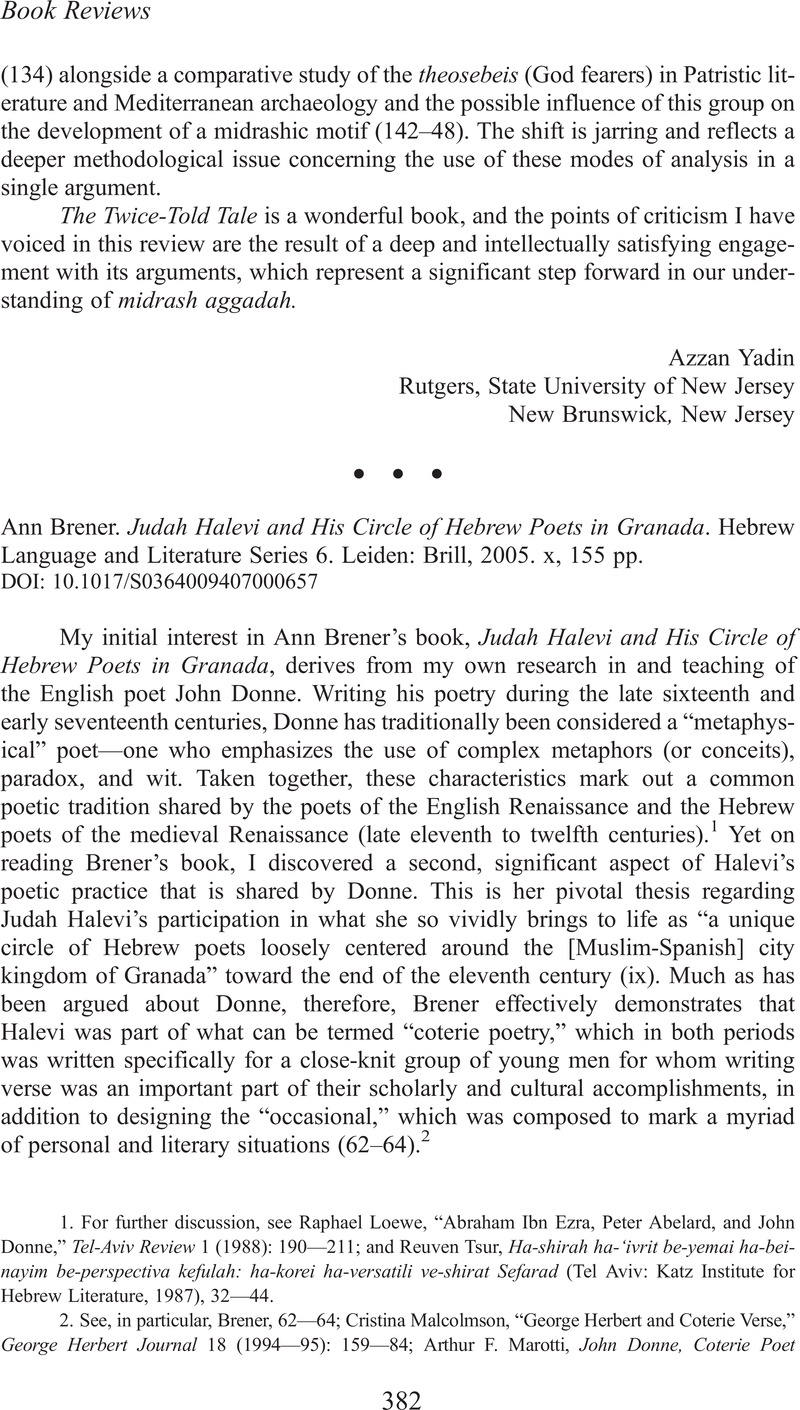No CrossRef data available.
Published online by Cambridge University Press: 05 November 2007

1. For further discussion, see Loewe, Raphael, “Abraham Ibn Ezra, Peter Abelard, and John Donne,” Tel-Aviv Review 1 (1988): 190—211Google Scholar; and Tsur, Reuven, Ha–shirah ha–‘ivrit be–yemai ha–beinayim be–perspectiva kefulah: ha-korei ha–versatili ve–shirat Sefarad (Tel Aviv: Katz Institute for Hebrew Literature, 1987), 32—44Google Scholar.
2. See, in particular, Brener, 62—64; Malcolmson, Cristina, “George Herbert and Coterie Verse,” George Herbert Journal 18 (1994—95): 159—84CrossRefGoogle Scholar; Marotti, Arthur F., John Donne, Coterie Poet (Madison: University of Wisconsin Press, 1986)Google Scholar; and Pebworth, Ted-Larry, “John Donne, Coterie Poetry, and the Text as Performance,” Studies in English Literature, 1500—1900, 29 (1989): 61—75CrossRefGoogle Scholar.
3. Brody, Heinrich, ed., Selected Poems of Jehudah Halevi, trans. Salaman, Nina (Philadelphia: Jewish Publication Society of America, 1973)Google Scholar; and Rosenzweig, Franz, Ninety-Two Poems and Hymns of Yehuda Halevi, ed. Cohen, Richard A., trans. Kovach, Thomas, Jospe, Eva and Gerda-Schmidt, Gilya (Albany: State University of New York Press, 2000)Google Scholar. For translations of selected poems by Halevi, see also the two volumes by Scheindlin, Raymond P., Wine, Women, and Death: Medieval Hebrew Poems on the Good Life (Oxford: Oxford University Press, 1999), 118—27Google Scholar; and The Gazelle: Medieval Hebrew Poems on God, Israel, and the Soul (Oxford: Oxford University Press, 1999).